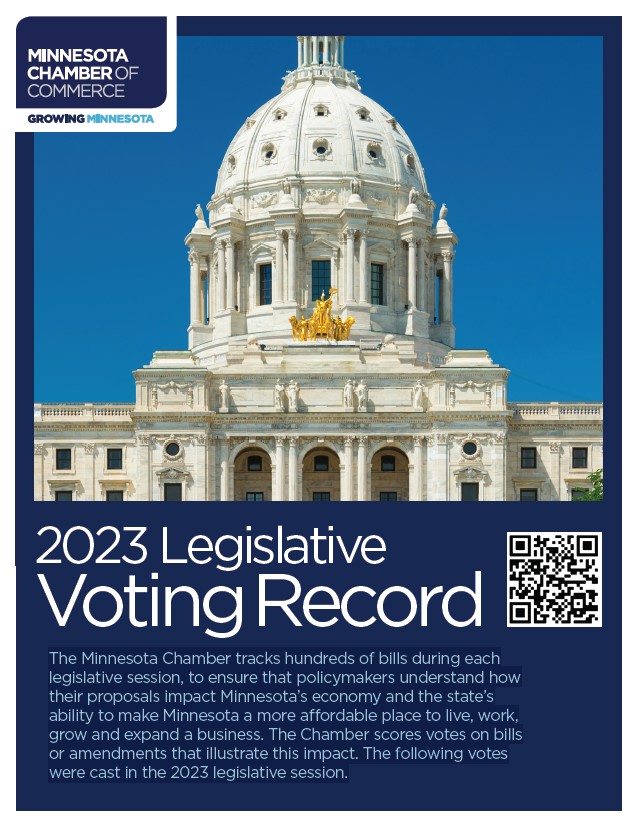2023 Legislative Voting Record
Want to get involved in the Chamber's policy development process? Learn more about top issues for our economy, join a policy committee or receive action alerts from the Capitol. Questions? Contact our team at mail@mnchamber.com.
Download the 2023 Legislative Voting Record
The Minnesota Chamber tracks hundreds of bills during each legislative session, to ensure that policymakers understand how their proposals impact Minnesota’s economy and the state’s ability to make Minnesota a more affordable place to live, work, grow and expand a business. The Chamber scores votes on bills or amendments that illustrate this impact. The following votes were cast in the 2023 legislative session.

2023 interactive legislative scorecard
In addition to the printed copy of the 2023 Legislative Voting Record, we've created an interactive scorecard to easily view legislators' votes from this session.
Click the bill number to view a description of the bill or amendment.


